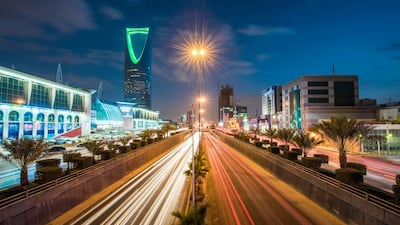Saudi Arabia’s 100 billion riyals (Dh97.93bn) plan to grow its logistics, mining and energy sectors will spur demand for industrial real estate in the kingdom, especially through the proposed development of special logistics zones to attract businesses.
The country has several projects in the pipeline that are expected to increase the number of high-quality industrial stocks for investors and end users, according to CBRE’s Saudi Arabia Industrial & Logistics white paper, published on Monday.
These include Tharwat Logistics City north of Riyadh; the 5 million square metre Asfan Smart Industrial City 2 in Jeddah; Riyadh Integrated Logistics Bonded Zone near King Khalid International Airport, and King Salman Energy Park, which is intended to support the kingdom’s ambitions to become a global energy hub, the report noted.
“Saudi Arabia has a number of attributes that will enable the country to emerge as a logistics hub of global significance,” said Simon Townsend, general manager for KSA, and head of strategic advisory for CBRE.
“The kingdom benefits from a central location that allows for optimal distribution to the GCC, wider Middle East region and North and East Africa – as well as residing on the Asia-to-Europe trade route. The sector provides various opportunities for foreign investors who are eager to enter the Saudi market.”
In January, Saudi Arabia unveiled its National Industrial Development and Logistics Programme (NIDLP) – a sizeable strategy to spend 100bn riyals in 2019 and 2020 to help wean the country off oil revenues.
The programme is intended to create 1.6 million jobs and attract up to 1.6 trillion riyals of inward investment by 2030, through 42 initiatives aimed at stimulating local activity in sectors including mining, logistics and energy. It is part of the government's wider Vision 2030 economic diversification agenda.
CBRE’s report said numerous government initiatives set to be unveiled as part of the NIDLP – including the creation of logistics zones with investment opportunities worth 7bn riyals, according to the government – would “positively impact demand for industrial and logistics real estate across the kingdom in the short and medium term”.
At the same time, the growth of regional e-commerce will fuel the need for alternative industrial products, while emerging technologies such as self-driving vehicles, robotics, automation and artificial intelligence will further shape occupiers’ space requirements.
Riyadh has close to 70 million sq metres of gross floor area in key industrial areas such as Riyadh Industrial City 2, As Sulay Industrial Area and Al Mishal Industrial Area, according to CBRE’s report. Jeddah and Damman have 65 million sq metres and 28 million sq metres of space, respectively.

